To continue the thought exercise we started the other day, we’re going to think about where to forage for food in Georgia. If your edible landscaping is not going to give you your 2000 calories a day, you’re going to have to expand your search.
Food foraging, like everything else is more complicated than it needs to be. There are a variety of laws, regulations, property rights, and the common good that regulate this. Best is to get someone’s permission first, and forage where you know it’s legal. But at the end of the day, it’s still a worthwhile project, to understand what is edible and what isn’t. It connects you with nature, plant species, and also connects you with like-minded people who want to do the same thing.
All of this is falls into the category of “human scale living” which is something we’re interested in. Leaving aside the lunatic fringe for the time being, it’s about understanding the local natural sources of everything. This should give you more respect for the people that inhabited and settled this area and an appreciation for the abundance in the area.
In our case, the “area” is about an hour southeast of Atlanta.
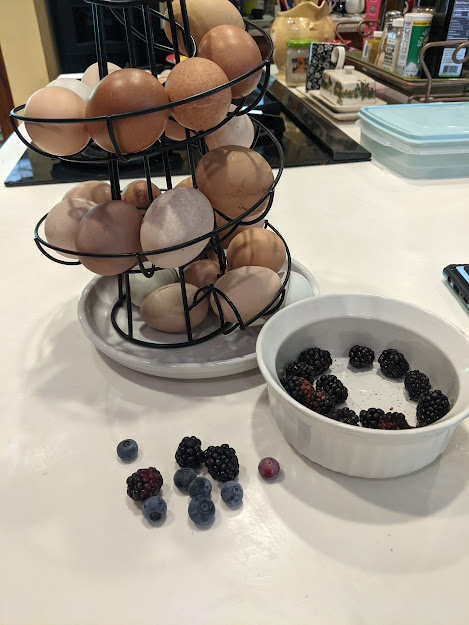
The Difference between Foraging and Edible Landscaping
Yeah, we talked about Edible Landscaping earlier.
Edible landscaping is more like “gardening” in which you’re looking in your immediate backyard for sources of edible plants. Food foraging is when you hit the road, and start looking in your general area for food sources.
It’s the kind of thing the hunter-gatherers were doing before we disrupted their lifestyles. This part of Georgia, for your information, is incredibly lush. It rains all the time. It’s covered with forest land, and there is abundance. Keep in mind, though, that it’s also hot and humid for about 6 months out of the year. The early European settlers surely found it a little rough.
Also, keep in mind that the population of the area was about the same in 1920 as it was in 1970. A huge fraction of the population found it too tough to live in, and moved into town during the 1930’s. Anything we do to live off the land is going to look like work, of the type that most modern people are not able to do.
So keep that in mind going forward.

Disclaimer
Also, by the way, keep in mind before you eat any of this stuff that this post is for entertainment purposes only. We don’t take any responsibility for anybody eating anything, and if you do any of this stuff it’s at your own risk.
Also consult a doctor if you have any concerns in this regard.
But, also keep in mind that we’re living in a world where vast amounts of people have no idea where their food comes from. They are convinced that food comes from the store. Anything that doesn’t come through some complex supply chain can’t be good, right? Not only that, but the government officials have done everything they can to encourage this, because they’re trying to “protect” you.
How we got to that point is anybody’s guess. You already know about how we feel about the Georgia Food “Safety” law, which should have some other name.
Where to Forage for Food in Georgia
Well, this is part of the fun, we suppose. Most of the area surrounding Madison is little southern towns, surrounded by farmland at the current time.
Yes, Atlanta is encroaching at some pace, but at the present moment, there is still a lot of natural land around. We’re lucky in that we’re in the middle of about 4 acres of woods, with all sorts of trees and woodland creatures. Surely there are places nearby that are even better.
Another Disclaimer
Anything below that has the word “law” in it shall not be construed as legal advice. We are not trained lawyers either. Everything in here is presented for entertainment purposes only.
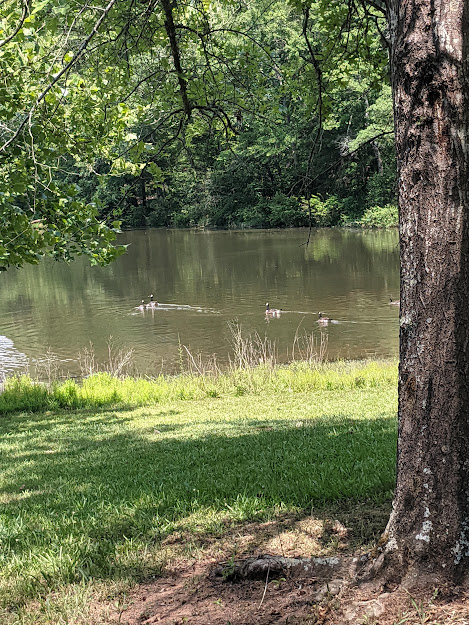
State Parks
Well, in fact, Georgia takes a bit of a dim view of this. According to the openly stated park rules it’s illegal to collect any plants or plantlike materials in a Georgia state park.
According to this, it’s also illegal to pack heat at a Georgia state park, which is odd considering the recent liberalization of concealed carry laws, which says that you can do so at Music Midtown. So, you’re not allowed to gather pecans or acorns at Hard Labor Creek but you can carry an unloaded weapon while not doing so.
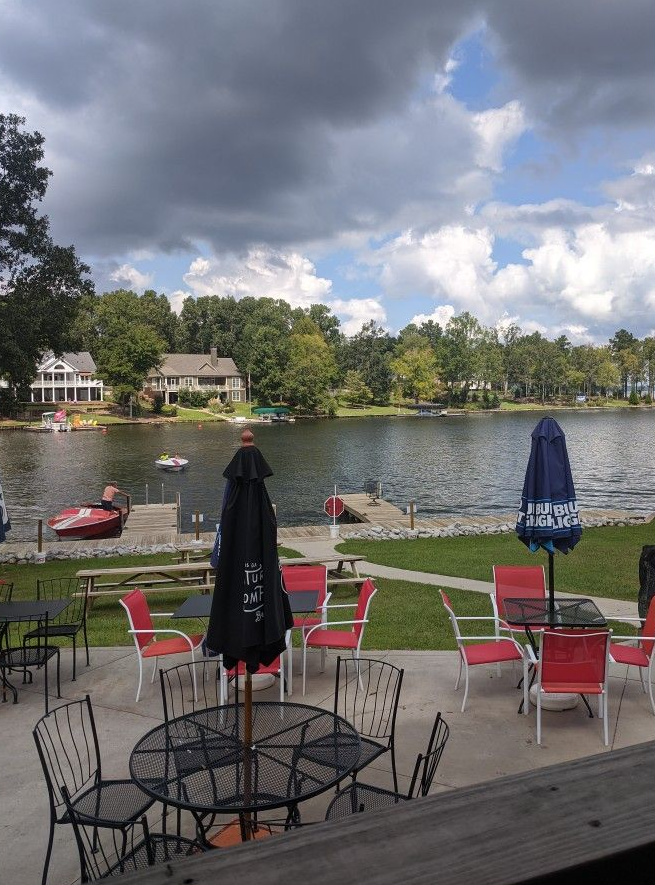
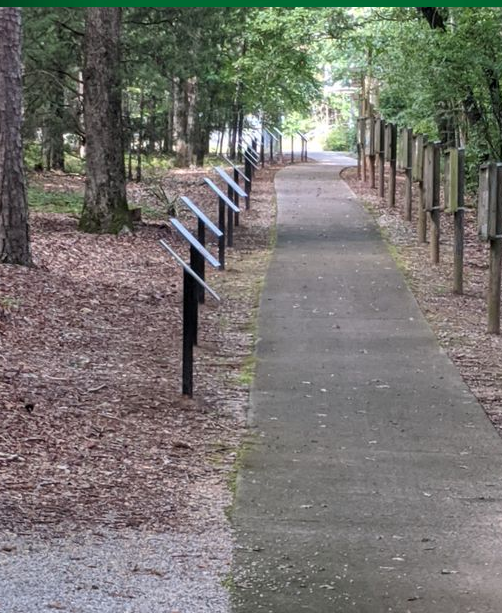
Federal and Corps of Engineers Parks
This depends on who you are, and what park. There is an article below that says that if you are Cherokee, and want to harvest “ramps” on your ancestral land, you and a few others can do so if you get a permit.
Here’s a quote from the Corps of Engineers:
Cutting or gathering of trees or parts of trees and/or the removal of wood from
project lands is prohibited without written permission of the District Commander.
(c) Gathering of dead wood on the ground for use in designated recreation areas as
firewood is permitted, unless prohibited and posted by the District Commander.
Highway Frontage
In the eyes of some people, going out along a state highway and picking the wild flowers is considered illegal. Food foraging may fall into that general category of removing vegetable material from state right of way.
In the eyes of some other people, going out along a state highway and removing “vegetation” is doing the state a favor, and according to the link below, can be done with a permit.
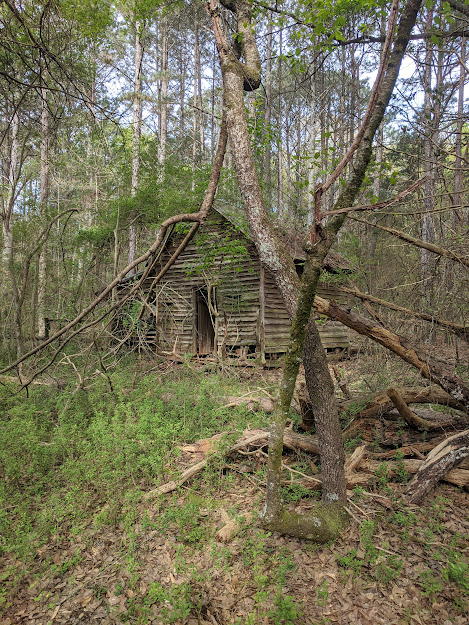
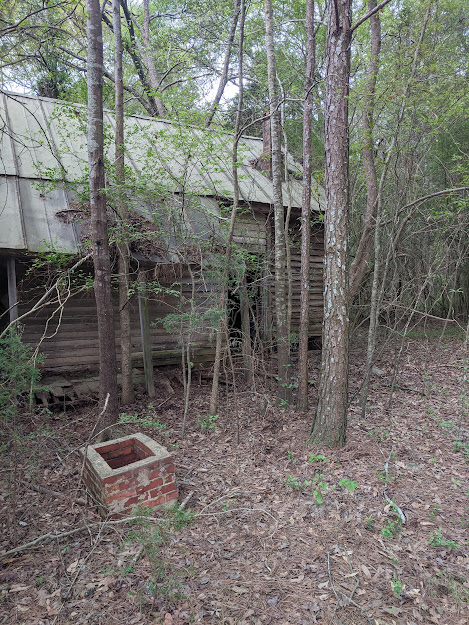
Where to forage for food in Georgia: Abandoned Farms
This is a thing, around here. The word “abandoned” implies that someone owns it, but doesn’t care. The countryside in this area is dotted with old abandoned farmhouses, and overgrown farmyards. Does anyone own it? Sure, we are sure someone is paying the taxes, and still owns it.
Very often, in some of the out-of-the-way corners of the county, one of the old timers passes away, passes the land to his or her kids that moved to the city. The kids haven’t gotten around to disposing of the land yet, or the land has been bought out by someone who is just sitting on it until the real estate prices improve.
In this day and age, there are people that are speculating that a nice real estate subdivision can be built on that little 10-acre piece of land that looks deserted.
In a general way, it’s better to seek permission before taking anything off of anywhere.
Private Land with Permission
This is probably the best approach. Find someone who will let you walk around on their land and take a few nuts and berries. If you want to come to our place and stomp around the backyard, we’ll let you. Not everybody is that open minded. Actually, if you want to come to our place and, for free, cut and haul off a few excess trees, we will let you do that too. And, while you’re at it, you can dig us a few garden beds so we can plant sweet potatoes. In fact, for a few dollars, we’ll even teach you how to plant sweet potatoes. We’re fun like that.
If you see a sign that says “no trespassing”, that’s an indication that someone doesn’t want you on their land, because some people are sensitive that way.
In this area, people are less worried about acorns than about deer. This is because they prefer that you and your buddies don’t pull your deer camp into their backyard and start shooting deer outside their place at dawn some chilly December.
General Rules for Foraging
There’s a list of rules that on this topic.
- Ensure the long term health of anything you can forage
- Don’t take more than you can use
- Don’t damage the plant and its environment
- Make sure you positively identify anything you intend to take
- Know which parts of the plant are edible, when they’re edible, and how to prepare them.
- Only forage when it’s safe and legal
- Remember that the purpose of foraging is to better connect with nature.
Number 5 may require some further education on your part.
There’s another good idea, which is to target invasive species. That requires you to know the difference between a native species and invasive, and in some parts of the country, everything is invasive.
Sorry to have Complicated This
This does seem like a little more of a project than we started out with. But, that’s not to say that people don’t find a way anyway.
There’s a nice article below by Forager Chick. There are people around who do this sort of thing. Plus, there is a list of classes in the area that you can take on how to do foraging, that I’ve posted in the links.
Maybe that’s another benefit. This gives you a connection with other people that are interested in this as a part of their lifestyle.
The Atlanta Food Forest
There is a glimmer of hope on the topic of food foraging. in Atlanta, there’s what is called the Atlanta Food Forest project. Someone donated their abandoned farm for just this sort of thing, namely educating people on edible plants, foraging and other activities to teach people what food is, and where it comes from.
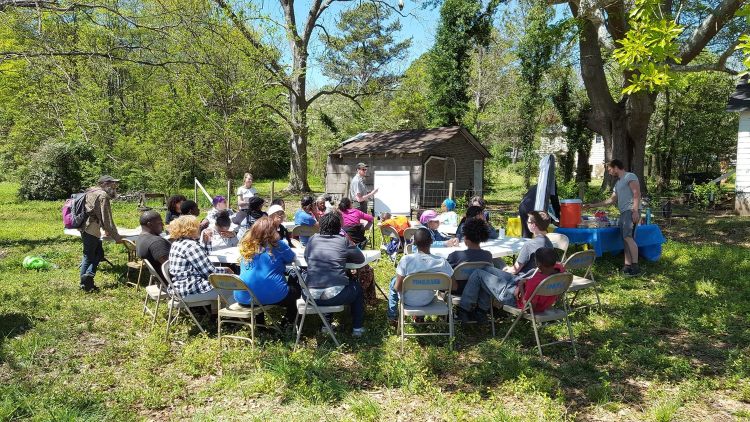
Where to forage for food in Georgia
Okay, so here’s your bottom line on where to forage for food in Georgia.
It is possible to figure out where to forage for food in Georgia.
Food foraging, like everything else is more complicated than it needs to be. There are a variety of laws, regulations, property rights, and the common good that regulate this. Best is to get someone’s permission first, and forage where you know it’s legal. But at the end of the day, it’s still a worthwhile project, to understand what is edible and what isn’t. It connects you with nature, plant species, and also connects you with like-minded people who want to do the same thing.
Links and References
Georgia Department of Resources
https://gastateparks.org/ParkRules
Foraging in Federal Parks
https://reason.com/2019/04/06/complicated-rules-for-foraging-arent-hel/
Corps of Engineers Parks
https://www.mvr.usace.army.mil/Portals/48/docs/Recreation/ODS/Regulations/RulesandRegulations.pd
Highway Frontage
https://law.justia.com/codes/georgia/2020/title-32/chapter-6/article-3/part-2/section-32-6-75-3/
http://mydocs.dot.ga.gov/info/gdotpubs/publications/6755-9.pdf
Good Life Revival
https://thegoodliferevival.com/blog/foraging-rules
Plantsnap
Forager Chick
Foraging Classes
Atlanta Food Forest
https://www.aglanta.org/urban-food-forest-at-browns-mill-1/
![]()
